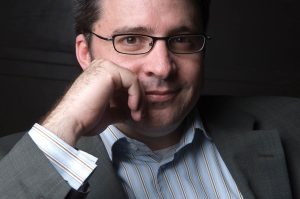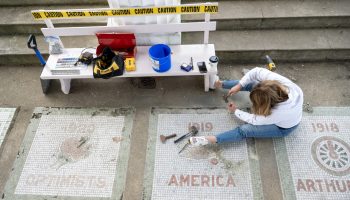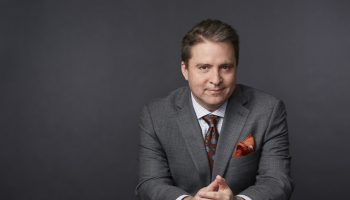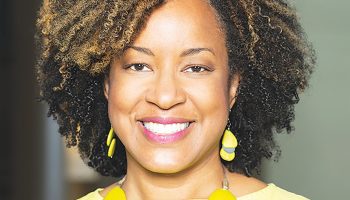Robert P. Jones believes America is evolving — but not in a gradual sense. Less than 50 years ago, issues of homosexuality and racism were glossed over and tucked away, and American culture was dominated by what Jones calls “White Christian America.”
Now, these social debates are at the forefront of politics, and the cries of a group that once held the majority are becoming meaningless background noise.
 At 2 p.m. Monday, July 2 in the Hall of Philosophy, Jones will discuss what this major shift means during his lecture “The New Challenge of Pluralism after the End of White Christian America.” Jones’ lecture is part of Week Two’s Interfaith theme “Religion and American Identity.”
At 2 p.m. Monday, July 2 in the Hall of Philosophy, Jones will discuss what this major shift means during his lecture “The New Challenge of Pluralism after the End of White Christian America.” Jones’ lecture is part of Week Two’s Interfaith theme “Religion and American Identity.”
“Despite the outcome of the 2016 elections, the key long-term trends indicate White Christian America’s decline is continuing unabated,” Jones wrote in an article for The Atlantic. “Over the last eight years, the percentage of Americans who identify as white and Christian fell 11 percentage points, and support for same-sex marriage jumped 18 percentage points.”
Jones’ lecture, moderated by Interfaith Youth Core Founder Eboo Patel, will focus on how pluralism is defined in the modern social landscape. As new groups and cultures are recognized by American society, they face challenges in finding a peaceful coexistence.
Patel, who is moderating all of the Week Two interfaith lectures, is a fierce advocate for religious tolerance. He wrote a set of essays on religious pluralism that will be published in the fall by Princeton University Press. Much of Jones’ lecture will serve as a response to these writings.
“I’ll be talking about the new challenges that the project of pluralism faces, not only in our current political climate, but because demographic changes in the country have made previous generations’ stopgap solutions to pluralism untenable for us today,” Jones said.
As founder and CEO of the Public Religion Research Institute, Jones has spent years researching the intersection of religion, culture and politics. In his 2016 book The End of White Christian America, he explores this connection as a way to understanding the rapid decline of the white, conservative group that once dominated America.
Due to this decline, Jones believes it is imperative to quickly adjust to the changing social landscape, which he will discuss at Chautauqua.
“I’ll offer some suggested resources for a new way of thinking about pluralism that is consistent with America’s democratic promise and that doesn’t rely so heavily on a white Protestant cultural center,” he said.
Jones, who first visited Chautauqua in 2017, does not subscribe to the belief that the election of President Donald Trump represents a conservative revival. He said the current administration is a result of the “gravitational pull of nostalgia among white evangelicals,” a force he believes is rapidly fleeting.
“At the end of the day, white evangelicals’ grand bargain with Trump will be unable to hold back the sheer weight of cultural change, and their descendants will be left with the only real move possible: acceptance,” he wrote in The Atlantic.




